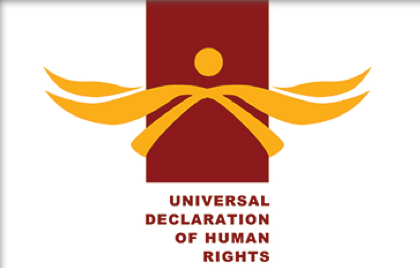case 1: account closure
Cashless banks have no vault and no cash services apart from the ATMs. ATMs in Europe never handle denominations smaller than €20. This means that even when you are closing an account at a cashless bank, the most you can pull out is a multiple of €20 from your balance. The bank expects you to open an account somewhere else first and transfer the remainder to the other account. This is to keep people trapped in the banking system.
It seems to violate article 17 ¶2:
- Everyone has the right to own property alone as well as in association with others.
- No one shall be arbitrarily deprived of his property.
This is not exactly up there with genocide and torture. It’s perhaps the smallest human rights infraction I can think of. But nonetheless, banks should be structured to comply with human rights no matter how trivial, no? It seems like even a cashless bank should (in effect) be required to keep some petty cash on-hand for account closures.
case 2: withdrawal limits
The same question applies for bigger cases. E.g. a bank (cashless or not) may have a daily withdrawal limit; weekly, and monthly too. Perhaps it is fair enough to have a fee or penalty for exceeding their limits, but if I understand correctly the bank has a human rights obligation to allow you to withdraw all your money. At the moment banks with limits simply refuse to execute withrawals that exceed their limits.
case 3: card refusal
ATMs and shops refuse people access to their money for countless arbitrary reasons.
- When a customer’s ID card copy on the bank’s files expires, some banks do not bother to inform the customer or request an updated copy. They just freeze the account. When money is denied, the customer magically presents themselves to the bank to find out why. Cutting off access to funds is the bank’s way of communicating.
- ATMs reject cards for undisclosed reasons. Sometimes a faulty AI bot falsely triggers and claims a transaction looks fraudulent. Sometimes ATMs are discriminating against people based on their origin (locally issued cards get a higher limit than foreign ones, but the ATM does not tell the customer what the limit is or why their transaction is denied).


Hopefully a bank order, otherwise you’re right back to needing another bank. And then you still have the issue of over-the-counter services coming with a fee.
Indeed, a banker’s draft almost always involves a fee. Though it’s possible that some high value accounts in places like the US would come with some perks like a few gratis banker’s drafts per year. Certainly it’s not the norm anywhere that I am aware of.
And from there, cashing the banker’s draft is a problem. @protist@mander.xyz is apparently thinking in terms of the U.S. case where there are (predatory) high-fee “checks cashed” shops all over, where at least you can get a check cashed. I think a European with a cheque is on shaky territory as it is – unlikely to get a cheque of any kind, and also unlikely to deposit one, and in if a European has no bank account it’s likely impossible for them to spend a cheque.
Okay, interesting. Apparently everywhere else in the world what I’m talking about is called a cashier’s cheque. I just meant the one that you can cash without an account because it’s guaranteed to clear.
In the US you can cash a check at many grocery stores for about $3. Banks have explicit policies in regards to shutting down accounts, have you looked into any of those, or is this all a thought experiment?